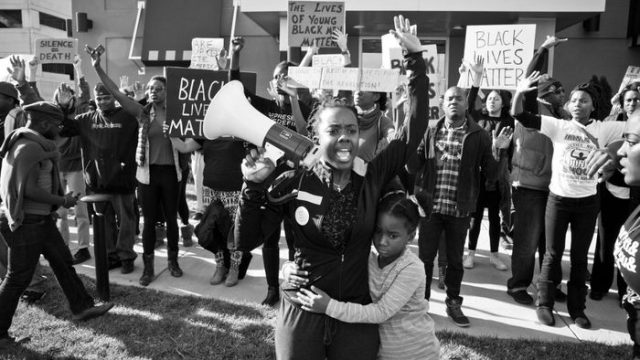Protests against police brutality continued worldwide this week. At the same time, June 1 marked the start of Pride Month. The world has made changes before and is on the verge of changes again. And the thoughtful longform pieces describing it are just starting to be written.
Thanks to sbc0212 for contributing this week. Please send articles of interest throughout the week to ploughmanplods [at] gmail and post and discuss articles from this week below. Have a happy Friday and be safe out there, Soluters.
Vulture offers a list of twelve documentaries about racism and police brutality in America:
Camilla Hall’s documentary follows We Copwatch founder Jacob Crawford from his home in Oakland to the sites of those murders, and the cameramen he recruits along the way. Hall follows those cases through the system (such as it is), and dives deep into the day-to-day work of the organization. Copwatch is an observational documentary, and an intimate one, acquainting viewers with these citizen journalists and listening to the stories they tell.
The Hollywood Reporter collects coming out stories across the decades from icons in the Hollywood LGBTQ community:
[Richard] CHAMBERLAIN I was about 69 years old [in 2003], and it was almost as if an angel walked into the room — there was, of course, no angel there, at least not visibly — and put her hand on my head and said, “You know something, Richard? This whole thing about the negative side of being gay is total bullshit.” This wonderful holy being said, “It’s the most benign fact about you.”
For The Ringer, Rodger Sherman breaks down each of Howie Ratner’s bets in Uncut Gems, their relative strategy merits, and what they can teach you on your own path to becoming a degenerate gambler:
Francesa—I’m done calling him “Gary,” because come on, it’s Mike Francesa—is baffled, because Howard just bet against the Celtics before returning a few hours later to place a massive parlay banking on the Celtics to dominate in every way. Francesa derides the bet with his best line of the film, delivered with enough New York accent to momentarily transport me to the bagel place across the street from my grandma’s house: THAT’S THUH DUMBEST FUCKIN’ BET I EVAH HOYD OF.
Drew Turney assembles an oral history of Who Framed Roger Rabbit? for io9:
…Disney said “We’ll show you how to do it because we’ve done that a lot on Pete’s Dragon and Mary Poppins.” They laid down simple rules. We couldn’t move the camera because it’s too hard for animators to track camera movement. We had to stay away from light and shadow. We had to make sure we lit the set very evenly, which made it very flat. As we left that meeting Bob Zemeckis and I said ‘Well, those are the rules we’re going to break.’

